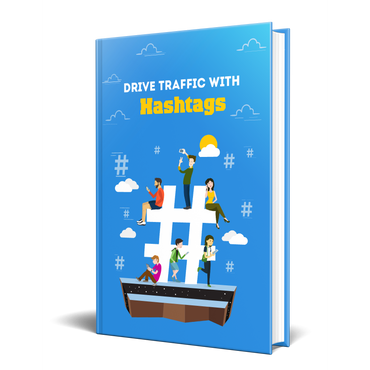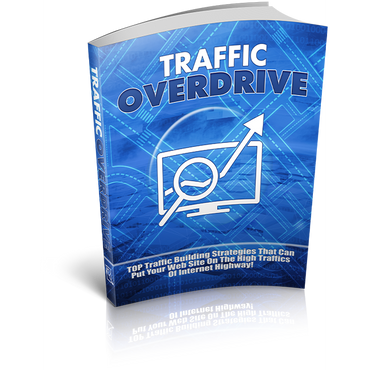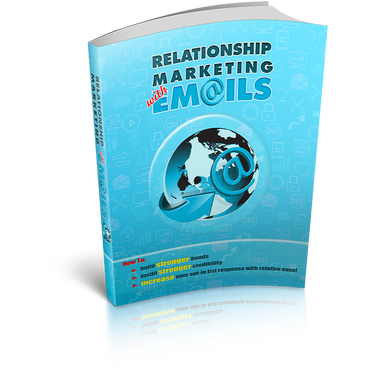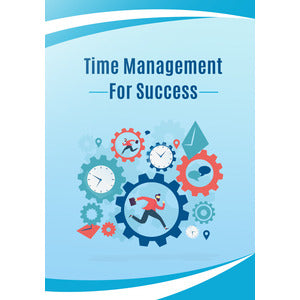Popular Products
-
Recipe Baked Chicken Parma - PLR
Regular price $1.49 USDSale price $1.49 USD Regular priceUnit price per -
Drive Traffic With Hashtags - PLR
Regular price $3.97 USDSale price $3.97 USD Regular priceUnit price per -
10 Anti-Aging PLR Articles
Regular price $1.99 USDSale price $1.99 USD Regular priceUnit price per
-
Ebook Creation For Illiterate - PLR
Regular price $3.37 USDSale price $3.37 USD Regular priceUnit price per -
100 Exercise Tips - PLR
Regular price $1.97 USDSale price $1.97 USD Regular priceUnit price per -
Blogging Basics For Beginners - PLR
Regular price $3.50 USDSale price $3.50 USD Regular priceUnit price per
-
Magnetize Your Customers - PLR
Regular price $2.50 USDSale price $2.50 USD Regular priceUnit price per -
Successful Online Freelancing - PLR
Regular price $2.97 USDSale price $2.97 USD Regular priceUnit price per -
Battle Your Fears - PLR
Regular price $1.97 USDSale price $1.97 USD Regular priceUnit price per
-
What Is Stress And How Can We Avoid It - PLR
Regular price $1.97 USDSale price $1.97 USD Regular priceUnit price per -
Winning the Affiliate War - PLR
Regular price $1.97 USDSale price $1.97 USD Regular priceUnit price per -
Affiliate Marketing A To Z - PLR
Regular price $2.97 USDSale price $2.97 USD Regular priceUnit price per
-
Traffic Overdrive - PLR
Regular price $1.97 USDSale price $1.97 USD Regular priceUnit price per -
7 Infamous Resell Rights Questions Answered - PLR
Regular price $3.47 USDSale price $3.47 USD Regular priceUnit price per -
Opt-In List Building For Beginners - PLR
Regular price $2.47 USDSale price $2.47 USD Regular priceUnit price per
-
Relationship Marketing With Emails - PLR
Regular price $3.50 USDSale price $3.50 USD Regular priceUnit price per -
Gas-Saving Devices - PLR
Regular price $1.97 USDSale price $1.97 USD Regular priceUnit price per -
Debt Management - PLR
Regular price $3.47 USDSale price $3.47 USD Regular priceUnit price per
-
10 Useful Productivity Tips To Get More Done - PLR
Regular price $2.97 USDSale price $2.97 USD Regular priceUnit price per -
Tips And Tricks For Success For Young Entrepreneurs - PLR
Regular price $2.97 USDSale price $2.97 USD Regular priceUnit price per -
Muesli Bars - PLR
Regular price $1.97 USDSale price $1.97 USD Regular priceUnit price per
-
Webinars A-Z - PLR
Regular price $5.97 USDSale price $5.97 USD Regular priceUnit price per -
Vitamin D Secrets - PLR
Regular price $2.97 USDSale price $2.97 USD Regular priceUnit price per -
Advance Mental Wellness - PLR
Regular price $4.47 USDSale price $4.47 USD Regular priceUnit price per
-
Clear Mental Vision - PLR
Regular price $3.97 USDSale price $3.97 USD Regular priceUnit price per -
Manage Your Finances - PLR
Regular price $4.97 USDSale price $4.97 USD Regular priceUnit price per -
Refine Oneself - PLR
Regular price $3.47 USDSale price $3.47 USD Regular priceUnit price per
-
Break Anger - PLR
Regular price $4.97 USDSale price $4.97 USD Regular priceUnit price per -
101 Mutual Fitness - PLR
Regular price $2.97 USDSale price $2.97 USD Regular priceUnit price per -
Social Media Marketing Hacktics - PLR
Regular price $4.97 USDSale price $4.97 USD Regular priceUnit price per
-
Manage Stress In Ten Seconds - PLR
Regular price $2.97 USDSale price $2.97 USD Regular priceUnit price per -
10 Money Management PLR Articles
Regular price $1.99 USDSale price $1.99 USD Regular priceUnit price per -
10 Keto Diet PLR Articles
Regular price $1.99 USDSale price $1.99 USD Regular priceUnit price per
-
100 Food PLR Articles Pack
Regular price $6.97 USDSale price $6.97 USD Regular priceUnit price per -
Making Chocolate PLR Articles
Regular price $1.99 USDSale price $1.99 USD Regular priceUnit price per -
Bed & Breakfast PLR Articles
Regular price $1.99 USDSale price $1.99 USD Regular priceUnit price per
-
Grilled Salmon With Brown Rice Salad - PLR
Regular price $1.97 USDSale price $1.97 USD Regular priceUnit price per -
Best Substitutes For Meat - PLR
Regular price $2.97 USDSale price $2.97 USD Regular priceUnit price per -
Healthy Eating For Life - PLR
Regular price $1.99 USDSale price $1.99 USD Regular priceUnit price per
-
College Cooking - PLR
Regular price $2.50 USDSale price $2.50 USD Regular priceUnit price per -
Overcoming Brain Fog - PLR
Regular price $4.99 USDSale price $4.99 USD Regular priceUnit price per -
Dropshipping In And Out - PLR
Regular price $3.99 USDSale price $3.99 USD Regular priceUnit price per
-
Type 2 Diabetes - PLR
Regular price $3.99 USDSale price $3.99 USD Regular priceUnit price per -
Bitcoin For Profit - PLR
Regular price $3.99 USDSale price $3.99 USD Regular priceUnit price per -
Blogging Traffic Mantra - PLR
Regular price $3.99 USDSale price $3.99 USD Regular priceUnit price per
-
Video Marketing Unleashed - PLR
Regular price $3.99 USDSale price $3.99 USD Regular priceUnit price per -
Content Marketing Formula - PLR
Regular price $4.99 USDSale price $4.99 USD Regular priceUnit price per -
Bid Adieu To Stress - PLR
Regular price $4.99 USDSale price $4.99 USD Regular priceUnit price per
-
Time Management For Success - PLR
Regular price $3.99 USDSale price $3.99 USD Regular priceUnit price per -
Business And Life Transformation - PLR
Regular price $3.99 USDSale price $3.99 USD Regular priceUnit price per
Best Products
-
Financial Planning for Everyday People - PLR
Regular price $4.99 USDSale price $4.99 USD Regular priceUnit price per
-
Building Confidence When Facing Divorce - PLR
Regular price $4.99 USDSale price $4.99 USD Regular priceUnit price per
-
How to Create Empowering Goals - PLR
Regular price $4.99 USDSale price $4.99 USD Regular priceUnit price per
-
Using Lead Magnets to Grow Your List - PLR
Regular price $4.99 USDSale price $4.99 USD Regular priceUnit price per
-
Staying Flexible with Yoga - PLR
Regular price $4.99 USDSale price $4.99 USD Regular priceUnit price per
-
Affiliate Marketing Profits - PLR
Regular price $4.99 USDSale price $4.99 USD Regular priceUnit price per
-
Money Management for Millennials - PLR
Regular price $5.99 USDSale price $5.99 USD Regular priceUnit price per
-
Getting a Better Nights Sleep - PLR
Regular price $5.99 USDSale price $5.99 USD Regular priceUnit price per
-
Using Instagram to Expand Your Business Reach - PLR
Regular price $5.99 USDSale price $5.99 USD Regular priceUnit price per
-
Building Confidence When Facing Divorce - PLR
Regular price $5.99 USDSale price $5.99 USD Regular priceUnit price per
-
Getting Started as a Freelance Writer - PLR
Regular price $5.99 USDSale price $5.99 USD Regular priceUnit price per
-
Video Production Made Easy - PLR
Regular price $4.99 USDSale price $4.99 USD Regular priceUnit price per
Master Resale Rights vs. Private Label Rights: Understanding the Differences

Introduction: In the ever-expanding digital marketplace, content creation and product distribution have become key aspects of many businesses' success. To meet this demand, various licensing options have emerged, offering entrepreneurs and content creators the ability to leverage existing products and materials. Two popular licensing options are Master Resale Rights (MRR) and Private Label Rights (PLR). Although they may appear similar, there are significant distinctions between the two. In this article, we will delve into the differences between MRR and PLR to help you understand which licensing option suits your needs.
Master Resale Rights (MRR): Master Resale Rights grants individuals the permission to resell a product to customers while keeping all profits from the sale. MRR allows you to distribute a product and sell it to others, who, in turn, can also resell the same product. However, the terms of MRR often come with specific limitations and conditions, which must be adhered to. For instance, some MRR licenses may restrict the pricing, restrict the product from being given away for free, or include specific instructions on how the product should be marketed.
Advantages of Master Resale Rights:
- Quick and Easy: With MRR, you can acquire a product and start selling it immediately, bypassing the time-consuming process of creating your own product from scratch.
- Profit Potential: By reselling a product, you have the potential to earn 100% of the profits, as you do not have to share the revenue with the original product creator.
- No Need for Product Development: MRR eliminates the need for research, development, and content creation, saving you time and resources.
Limitations of Master Resale Rights:
- Competition: Since MRR allows multiple individuals to resell the same product, it can lead to increased competition, potentially affecting profit margins.
- Limited Customization: Most MRR licenses restrict the ability to modify the product, meaning you cannot make significant changes or rebrand it to suit your unique brand identity.
Private Label Rights (PLR): Private Label Rights are more flexible than MRR. PLR grants you the right to modify, rebrand, and even claim authorship of a product as if it were your own. This means you can customize the content, add your branding, and make substantial alterations to suit your target audience. PLR products often include various formats such as e-books, articles, software, or graphics.
Advantages of Private Label Rights:
- Customization: PLR provides the freedom to modify the product to align with your brand, voice, and target audience. You can add your own insights, examples, and personal touch.
- Branding Opportunities: With PLR, you can rebrand the product under your own name, giving you the opportunity to establish yourself as an expert in a particular niche.
- Versatility: PLR products can be repurposed into different formats, such as blog posts, videos, podcasts, or social media content, enabling you to reach a broader audience.
Limitations of Private Label Rights:
- Unique Content Required: To truly differentiate your PLR product, you must invest time and effort in customizing and adding unique value. Failure to do so may result in a product that appears generic and lacks market appeal.
- Licensing Restrictions: While PLR grants extensive modification rights, certain licenses may impose limitations on the ways in which the product can be used, such as prohibiting the transfer of PLR rights to others.
Conclusion: Master Resale Rights and Private Label Rights offer distinct opportunities and considerations for entrepreneurs and content creators. MRR allows for quick reselling of products with potential profit, while PLR provides greater customization and branding opportunities. Choosing the right licensing option depends on your goals, resources, and preferences. By understanding the differences between MRR and PLR, you can make an informed decision and leverage these licensing options to expand your business and meet the ever-evolving demands of the digital marketplace.
Understanding Basic Resale Rights: A Beginner's Guide
Introduction: In the vast world of digital products and intellectual property, resale rights play a crucial role in the buying and selling of goods. Resale rights grant individuals the ability to legally resell a product they have acquired. However, it's...
Master Resale Rights vs. Private Label Rights: Understanding the Differences
Introduction: In the ever-expanding digital marketplace, content creation and product distribution have become key aspects of many businesses' success. To meet this demand, various licensing options have emerged, offering entrepreneurs and content creators the ability to leverage existing products and...
Master Resale Rights (MRR): Unlocking Profit Potential in Digital Entrepreneurship
In the world of digital entrepreneurship, there are various strategies to generate income and establish a thriving online business. One such avenue that has gained traction in recent years is Master Resale Rights (MRR). MRR provides individuals with the opportunity...
Private Label Rights (PLR): Unveiling Profitable Opportunities
In the ever-evolving landscape of digital entrepreneurship, various avenues for generating income continue to emerge. One such opportunity that has gained significant popularity in recent years is Private Label Rights (PLR). PLR provides individuals with the ability to leverage pre-created...
































































